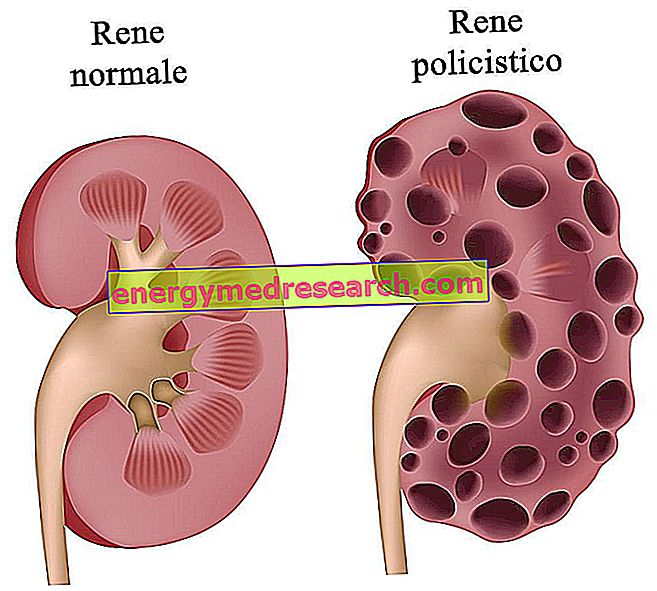DIBASE ® is a drug based on Colecalciferol
THERAPEUTIC GROUP: Vitamin D
IndicationsAction mechanismStudies and clinical effectiveness Usage and dosage instructionsWarnings Pregnancy and lactationInteractionsContraindicationsUndesirable effects

Indications DIBASE ® - Colecalciferol
DIBASE ® is used in the prevention and treatment of pathologies associated with vitamin D deficiency.
Mechanism of action DIBASE ® - Colecalciferol
Cholecalciferol, commonly called vitamin D3, is a steroid derived from dehydrocholesterol following exposure to ultraviolet radiation, a precursor of the biologically active form of vitamin D known as calcitriol.
This steroid, suitably bound in circulation to specific plasma proteins, reaches first the liver for a first hydroxylation and subsequently the kidney, where it is converted into 1, 25 dihydroxy colecalciferol, then rendered functionally active.
The hydroxylated vitamin can act on various tissues through specific nuclear receptors by finely regulating the calcium-phosphorus metabolism and more precisely by increasing renal reabsorption and intestinal absorption of these elements.
However, the steroid nature of this vitamin and the ability to regulate gene expression, in a manner very similar to what different hormones do, invited the various research groups to better investigate the biological and pharmacodynamic characteristics of this element, bringing out totally new therapeutic properties comparable to those of some growth factors.
Studies carried out and clinical efficacy
1.VITAMIN OF VASCULAR HEALTH
Administration of vitamin D in patients undergoing hemodialysis has been particularly useful in reducing some factors promoting atherosclerosis as the expression of vascular adhesion molecules and pro-inflammatory cytokines.
2. VITAMIN D IN THE DENTAL INDUSTRY
Experimental dental study that demonstrates how the supplementation with vitamin D and calcium can be positive in favoring mandibular and maxillary bone regeneration, improving the results of oral implantoprosthesis surgical therapy.
3. VITAMIN D3 AND INSULIN SENSITIVITY
Study demonstrating that oral administration of high doses of vitamin D3 may improve insulin sensitivity in patients with impaired fasting glucose, thus delaying the progression of metabolic disorders such as diabetes.
Method of use and dosage
DIBASE ®
Oral drops of 10, 000 IU / ml of cholecalciferol;
25, 000 IU / 2.5 ml oral solution of cholecalcifer;
solution for injection of 100, 000 - 300, 000 IU / ml of cholecalciferol:
the dosage and the therapeutic scheme varies considerably depending on the formulation used.
In principle, 100, 000 IU injectable solutions should be taken once every 4 to 6 months, 300, 000 IU solutions a year, and 25, 000 IU once a month.
Oral drops, on the other hand, adapt perfectly to daily or weekly administration, allowing a fine dosage modulation.
In any case, the definition of the therapeutic procedure is up to the physician after carefully evaluating the patient's state of health.
Warnings DIBASE ® - Colecalciferol
Treatment with DIBASE ® should be preceded and accompanied by periodic monitoring of blood and urinary concentrations of calcium and phosphorus, in order to avoid the appearance of hypercalcaemia and related diseases.
At the same time it is important to supervise renal function, which is important both in ensuring the correct biological and therapeutic functionality of cholecalciferol and in regulating the calcium / phosphorus metabolism.
PREGNANCY AND BREASTFEEDING
The side effects on the health of the fetus described following the administration of high doses of vitamin D3, lead the doctor to administer this drug only in cases of real need, where the benefits would be significantly more important than the risks.
We do not recommend taking DIBASE ® during breastfeeding, given the ability of this fat-soluble vitamin to easily pass through the breast filter, thus concentrating on breast milk.
Interactions
The administration of DIBASE ® should be performed with particular care in patients undergoing concomitant therapy with antiepileptics and anticonvulsants such as barbiturates, given the ability of these active ingredients to reduce the effect of vitamin D3.
The same attention should be paid to patients receiving digital therapy, whose intake together with that of vitamin D3 could increase the risk of hypercalcaemia and its effects on heart rhythm.
Contraindications DIBASE ® - Colecalciferol
DIBASE ® is indicated in cases of hypercalcemia, renal failure, nephrolithiasis and hypersensitivity to the active ingredient or to one of its excipients.
Undesirable effects - Side effects
Although cholecalciferol therapy has proved to be well tolerated if performed according to appropriate medical indications, it is not possible to exclude the appearance of some adverse reactions such as nausea, diarrhea, anorexia, weight loss, polyuria, sweating, headache, thirst, dizziness, hypercalcemia, hypercalciuria and hyperfostatemia with the relative complications, above all following therapies prolonged in time or at high doses.
Note
DIBASE ® can only be sold under strict medical prescription.



